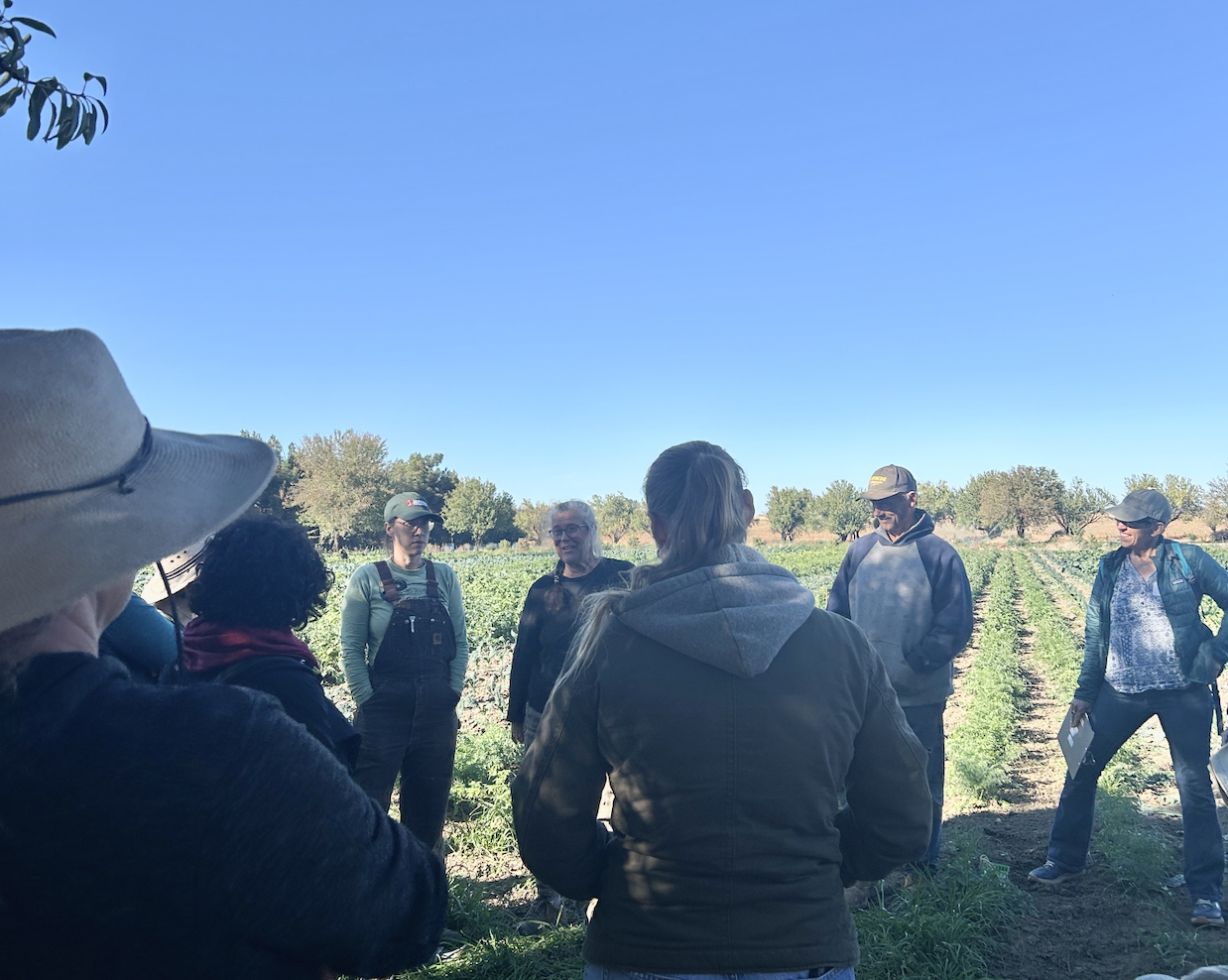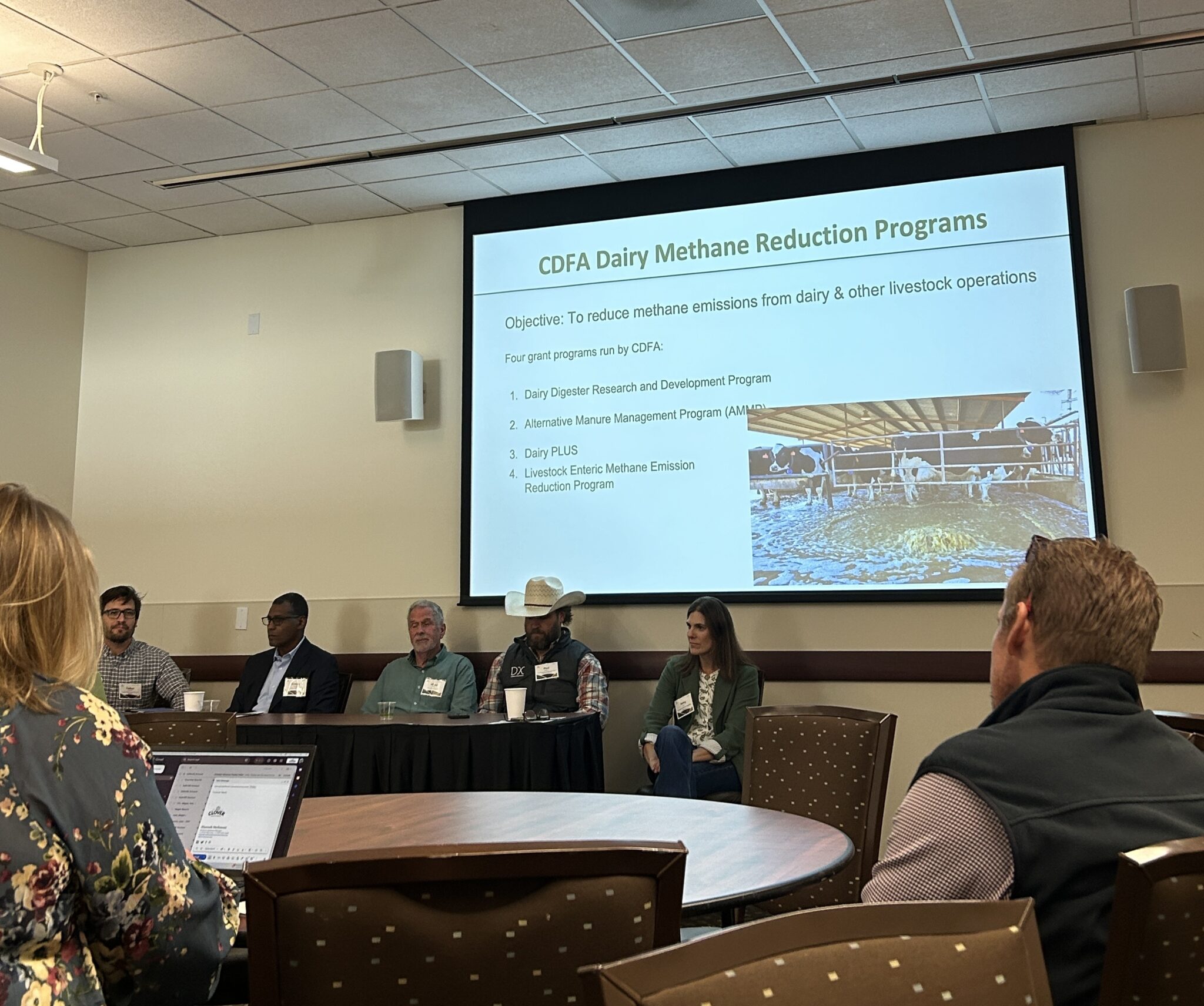BFI News
Empowering Berkeley Student Climate Leaders: Reflections from the CalCAN Climate Summit
BFI took a group of nine food systems students to a conference on climate change and the food system.

At the end of October, BFI brought a group of nine students to the Davis campus to participate in the California Climate and Agriculture Network (CalCAN) Summit.
The biennial CalCAN conference brings together experts on climate advocacy, policy, and innovation to discuss issues and opportunities in the field of sustainable agriculture, providing a unique chance for students to learn about current climate solutions in agriculture and to network with people in their field of interest.
We carpooled to Davis with Berkeley Food Institute staff, where we had helpful discussions about best practices and strategies for attending these types of conferences. BFI staff also helped advise students on which workshops to select, what questions to ask, and who they might want to connect with at the conference.
Once arrived, students participated in workshops, discussions, and panels about challenges and innovations in climate-friendly agriculture, which helped to inform their own work on campus. Sarah Sarfaty Epstein, an MS student in the Energy and Resources Group, noted that her “equitable agrivoltaics team is preparing for [their] spring research workshop, so it was incredibly valuable to see posters and hear presentations from other researchers in the field.”
Sofia Lyons, an MBA student at the Berkeley Haas School of Business, is broadly interested in food and farming as a business student and the workshop she attended about agrovoltaics, soil health, and carbon sequestering helped inform her search for opportunities for business solutions to climate change. “When attending a panel discussion at CalCAN, the panelists all said financial resources are their biggest challenge, which sparked my curiosity about finding private sector solutions that involve long-term investors,” according to Lyons.
Throughout the day, students were able to make connections that could inspire future climate-related career paths and projects. I was able to meet the team from FARMpreneurs, who are working on business development education for farmers, and connect more with them about media and communications for their work.

Panel from a conversation about methane on small, medium-scale and organic dairies. Photo by Olivia Rounsaville.
At big conferences, it can get overwhelming to think about the possible connections to be made, and many students often share that they have made surface-level connections at conferences they’ve previously attended. This time, with BFI’s support, I was able to make connections that could be more meaningful and lasting.
Likewise, Olivia Rounsaville, an undergraduate student studying agriculture and food systems, said that she “loved getting to speak with people who are doing really valuable and important work to change the food system in California.” Rounsaville described being surrounded by so many pioneering changer-makers in the food system as a “gift” and that she “was inspired by how much passion each of the speakers and attendees had for their work.”
The CalCAN conference was an opportunity for students to deepen their understanding of agriculture’s role in sustainability. As stated by Rounsaville, “the opportunity to bridge the gap between students and the field of food systems is so valuable, and BFI’s workforce development program has helped me gain a much greater understanding of what working in the food system looks like.” Now more than ever, it is vital to empower the next generation of leaders in the fight for climate solutions.